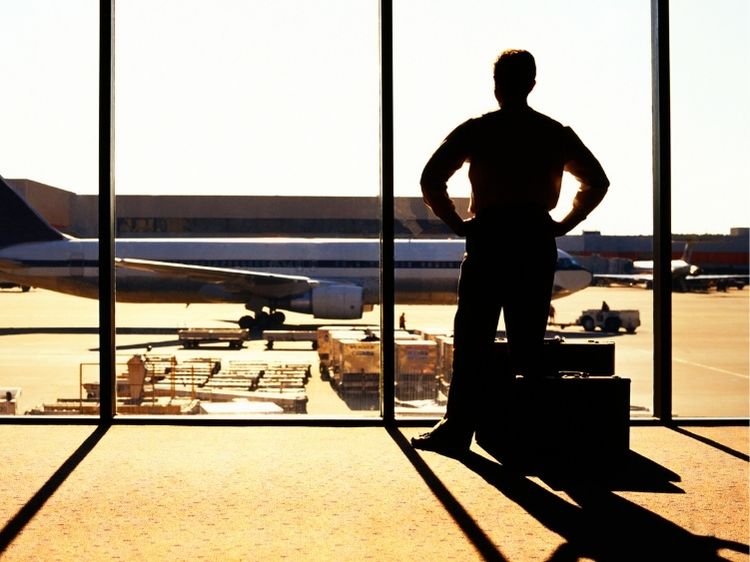Ah, Jamaica! The land of reggae, breathtaking beaches, and a warm, welcoming culture. Whether you’re dreaming of exploring vibrant Kingston, lounging on Negril’s pristine sands, or indulging in Montego Bay’s lively atmosphere, a trip to Jamaica promises a tropical adventure like no other. But before you pack your bags and get ready for some “irie” vibes, there are a few things every traveler should know about Jamaica’s travel advisory. Let’s dive into the essentials to make sure your journey is both safe and unforgettable!
Current Travel Advisory for Jamaica
The U.S. Department of State and other governmental organizations often issue travel advisories for various countries based on safety conditions. Here’s the latest update on Jamaica’s travel advisory, which covers key topics like crime rates, health concerns, natural risks, and tips for a safe visit.
Safety and Crime in Jamaica
Jamaica, known for its friendly locals and laid-back charm, does experience some safety challenges, mainly in urban areas like Kingston, Montego Bay, and Spanish Town. While the majority of trips to Jamaica are trouble-free, it’s essential to remain vigilant, especially if you’re venturing beyond the resort zones. Here are some tips to stay safe:
- Stick to well-populated tourist areas. Most visitors stick to designated tourist spots, which are well-patrolled and generally safe.
- Avoid walking alone at night. Like any large city, Jamaica’s urban areas can pose risks, especially after dark.
- Be cautious with valuables. Petty crimes like pickpocketing can occur, so it’s wise to keep valuables secure.
Health Considerations for Travelers
Traveling to a tropical destination always brings a few health considerations, and Jamaica is no exception. Here are a few things to keep in mind:
- Mosquito-borne Illnesses: Although malaria is not common, dengue fever and the Zika virus can occur in Jamaica. Pack insect repellent and wear protective clothing.
- COVID-19 Precautions: Be sure to check Jamaica’s current COVID-19 regulations and guidelines. Mask mandates, testing requirements, or quarantine protocols may be in place depending on current infection rates.
- Medical Facilities: Larger cities like Kingston and Montego Bay have adequate medical facilities. However, services may be limited in remote areas, so consider travel insurance that covers emergency medical care.
Weather and Natural Risks
Jamaica’s tropical climate is stunning but comes with its own risks, particularly during hurricane season (June to November). Here’s what you should know:
- Hurricanes and Tropical Storms: Jamaica is susceptible to hurricanes, particularly from August to October. Stay informed about weather updates and heed local advice.
- Heavy Rainfall and Landslides: Some areas may experience heavy rains that can lead to flooding or landslides, particularly in mountainous regions.
Top Travel Tips for Jamaica
Traveling with a few helpful tips in mind can make a world of difference on your Jamaica trip. Here’s what every traveler should know before arriving in Jamaica:
- Use Official Transportation. Opt for registered taxis or services provided by your resort, especially when traveling at night.
- Currency Exchange: The local currency is the Jamaican dollar (JMD). While U.S. dollars are widely accepted, having local currency on hand can be beneficial.
- Stay Connected: Prepaid SIM cards are available at the airport or major stores, allowing you to stay connected at a reasonable cost.
- Respect Local Customs and Culture: Jamaicans are friendly, and a respectful attitude goes a long way. Saying “good morning” or “good afternoon” is customary and appreciated.
Must-See Destinations in Jamaica
Jamaica is full of breathtaking locations and unique experiences, so don’t miss out on these top spots:
- Kingston: Jamaica’s capital is a cultural hotspot, featuring the Bob Marley Museum, Devon House, and the bustling downtown area.
- Montego Bay: Known for its luxurious resorts and beaches, Montego Bay is a favorite among travelers looking for relaxation.
- Ocho Rios: Adventure seekers can head to Ocho Rios, famous for Dunn’s River Falls, Mystic Mountain, and river tubing.
- Negril: For the ultimate beach experience, Negril’s Seven Mile Beach is a must-see, with soft sands and amazing sunsets.
Frequently Asked Questions (FAQs)
- Is Jamaica safe for solo travelers?
Yes, Jamaica can be safe for solo travelers, especially if you stick to tourist-friendly areas and follow standard safety practices. Opt for organized tours if you’re concerned about exploring on your own. - Do I need a visa to enter Jamaica?
Many countries, including the U.S., U.K., and Canada, allow visa-free travel to Jamaica for stays up to 90 days. Always check visa requirements based on your nationality before you travel. - What should I avoid while in Jamaica?
Avoid venturing into unfamiliar areas after dark, wearing flashy jewelry, and engaging in public confrontations. Additionally, respect local laws, particularly concerning drug use, as Jamaica has strict regulations. - How much cash should I bring?
While most areas accept credit cards, having some Jamaican dollars is beneficial for small purchases or markets. ATMs are available in major towns if you need cash. - When is the best time to visit Jamaica?
The peak travel season is December to April when the weather is warm and less humid. However, rates are generally lower during the off-season, which runs from May to November, though there may be a higher chance of rain.
Summary
Jamaica is a wonderful destination for those seeking sunshine, beaches, and vibrant culture. With a few travel precautions and some planning, you can enjoy a safe and unforgettable trip to this Caribbean gem. Remember to stay informed on current advisories, stay within popular tourist areas, and respect local customs. Whether you’re drawn to Jamaica’s famous beaches, its reggae roots, or its tropical adventures, you’re sure to have an experience that’s nothing short of irie!
Additional Information
For further details on travel safety and health recommendations, refer to the following authoritative resources:
- U.S. Department of State Jamaica Travel Advisory: travel.state.gov/traveladvisories

